ARTICLE AD BOX

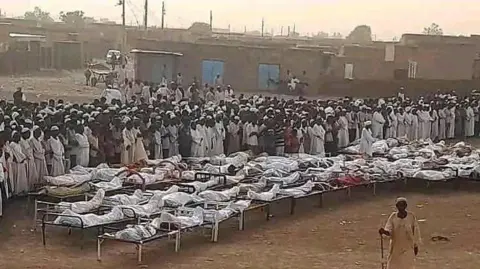 X
X
A still from a social media video shows victims of the attack on Wad al-Nourah
Warning: This article contains details some readers may find distressing.
For 40-year-old farmer Ali Ibrahim, the nightmare began in the late afternoon on 5 June, with the sound of heavy weapons.
“We had never seen such shelling since we were young," he recalls. "The bombardment lasted for four hours, with houses destroyed, screaming children - women and the elderly were helpless to escape.”
At least 100 civilians were killed that day in the attack on the Sudanese village of Wad al-Nourah, according to estimates by volunteers of the local resistance committee.
Mr Ibrahim says the villagers were unarmed: ”We are simple farmers. We've never carried weapons. We have no enemies. We are just citizens trying to protect our lives.”

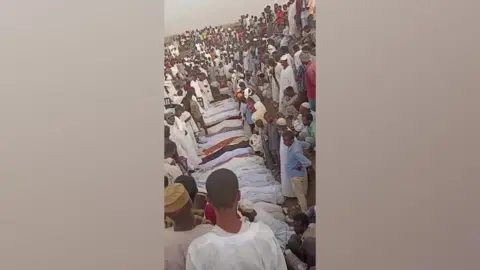 X
X
Footage was posted on social media showing bodies ready for a mass burial
The BBC has heard testimonies from several survivors who accuse armed men from the Rapid Support Forces (RSF) - the paramilitary group fighting the Sudanese army - of opening fire and storming the village in two successive attacks, using heavy weaponry. Dozens of residents were killed or injured.
The alleged number of deaths in this incident would make it one of the deadliest incidents involving civilians since the war between the army and the RSF began in April 2023.

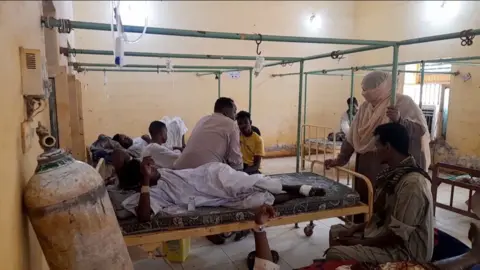
Survivors of the attack on Wad al-Nourah receiving treatment at Al Managil hospital
The BBC managed to speak to several survivors of the Wad al-Nourah attack, who are currently receiving treatment at the Al Managil government hospital where they were transferred for treatment.
Reporters were also able to analyse the videos they shared.
The hospital is located about 80km (50 miles) from the village, and many survivors arrived there hours after the attack. According to their testimonies, the RSF forces also tried to prevent them leaving the village, and looted most of their vehicles.

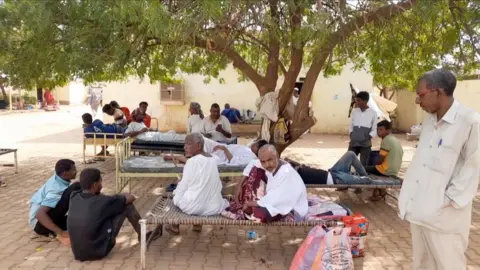
Survivors spoke of a bombardment unlike anything they had experienced in years
After enduring “hours of terror" during the bombardment, followed by frantic attempts to find a way to transport the wounded and bury those killed by the shelling, the residents were “shocked” by a second massive RSF attack on their village early the next morning, one of the survivors at the hospital told the BBC.
"They entered our house, beat me and my siblings, and asked, 'where is the gold?'. My little sister was scared and told my mother to give them the gold."
This account is consistent with those of other survivors, all of whom confirmed RSF forces had "attacked the village from three directions, entered homes, killed civilians, and looted valuables, including gold, cars, and stored agricultural products".
'They killed my brother'
Hamad Suleiman, a 42-year-old retail trader, said armed RSF fighters entered his brother's house and began shooting without warning.
"I went to my brother's house and found them there... They shot my brother and nephew dead, and another nephew was injured and is here with me in the hospital."
He says he tried to reason with the RSF fighters and asked why they had killed his family.
"I tried to talk to them, and they told me to recite the Shahada [The Islamic profession of faith that is recited when the feeling of death is near]. They shot me in the hand and fled... they looted all the cars.
"I was wounded and couldn't find a way out for hours."

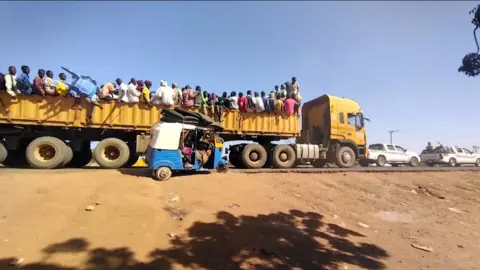
People fled the town of Wad al-Nourah following the alleged attack
The BBC contacted the RSF for their response to the survivors' testimonies, and the accusations of attacks, killings, looting and intimidation. We had received no reply by the time of this report's publication.
RSF spokesperson Al-Fateh Qurashi issued a video statement on X, formerly known as Twitter, a day after the incident - denying their forces had targeted civilians.
He stated that the forces had engaged with elements of the Sudanese Armed Forces (SAF) and Intelligence - also known as 'Al Mustanfaron' - a militia carrying small weapons and aligned with the SAF, who were in the village at the time of the attack.

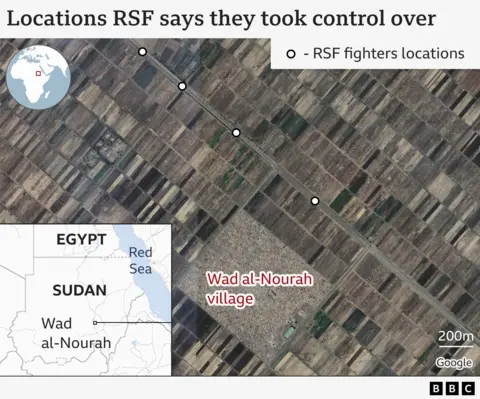
The BBC's fact-finding team analysed videos provided by the RSF, which they claimed depicted locations and trenches used by Al Mustanfaron in Wad al-Nourah. The analysis revealed these locations were all situated outside the village, not within it.
The analysis also showed that members of the RSF opened fire towards the village, using heavy weapons from about a mile away.
Wad al-Nourah is similar to hundreds of villages scattered across Gezira state. Most of its residents work in agriculture and trade, and it has a small weekly market where traders from neighbouring villages come to buy and sell livestock and crops.
The RSF took control of Gezira state, to the south of the capital, Khartoum, in December 2023, and has been accused of carrying out numerous abuses against civilians there - which it repeatedly denies.
Gezira state is one of the regions most affected by the war, with the fighting spreading there early on in the conflict. It also became a refuge for thousands of displaced people fleeing Khartoum and Darfur.
Since the RSF took control of the area at the end of last year, one village after another has suffered acts of violence.
The RSF continue to deny accusations of war crimes such as killing, looting, rape and burning villages - instead pointing the finger at what they call “unruly” people.

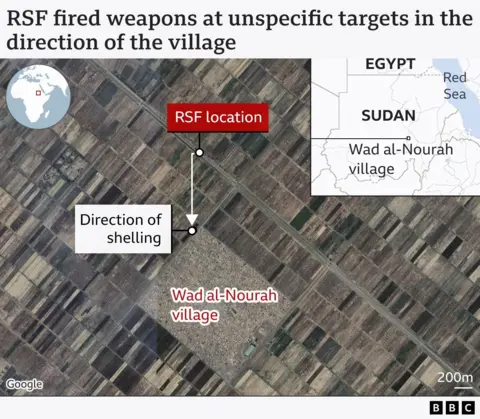
Thousands of people have died and 10 million have been forced to flee their homes since April last year, when Sudan was thrown into disarray after its army and a powerful paramilitary group began a vicious struggle for power.
The UN Resident and Humanitarian Co-ordinator for Sudan, Clementine Nkweta-Salami, has called for a comprehensive and transparent investigation to uncover the circumstances of the Wad al-Nourah attack.
The villagers, who lost dozens of loved ones, hope an investigation committee will be established, and that the perpetrators will be held accountable - rather than escaping punishment as has happened in the past in Sudan.
Additional reporting by Abdelrahman Abutaleb and Richard Irvine-Brown

 2 months ago
11
2 months ago
11
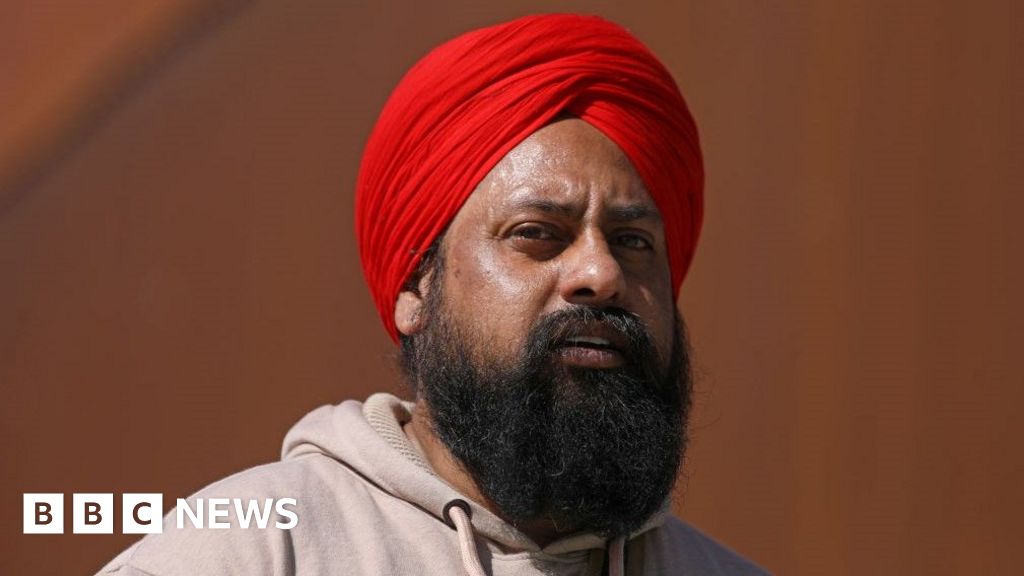
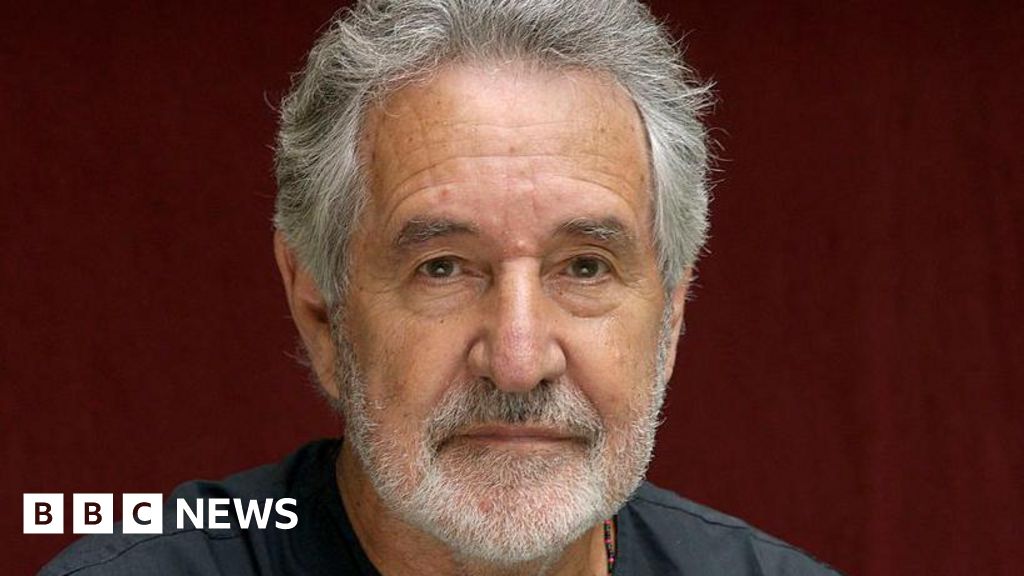
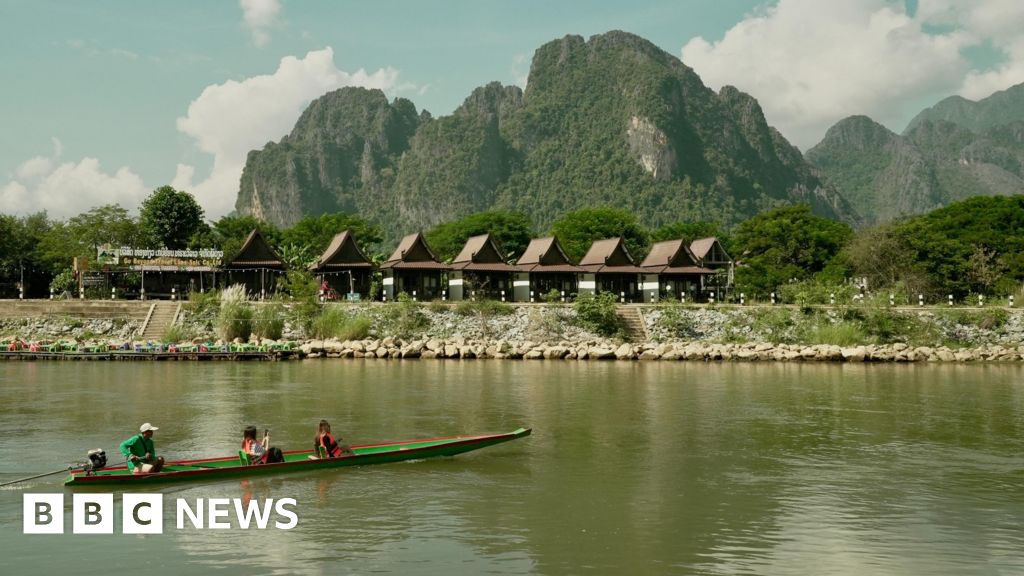





 English (US)
English (US)